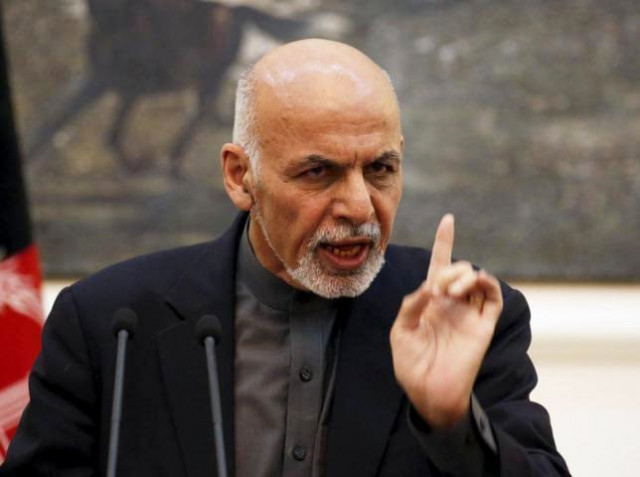Afghan govt blamed for delays in parliamentary elections
National Assembly rejects electoral reforms again over lack of consensus.

PHOTO: REUTERS
The National Assembly consists of two houses – Wolesi Jirga (House of People) and Meshrano Jirga (House of Elders).
Meshrano Jirga had passed the decree on reforms but it cannot become a law unless both the Wolesi Jirga and Senate approve it.
Now a joint committee of both the houses has opened debate on how to narrow down the differences. However, their first meeting on July 19 failed to produce any results, according to the Afghan media. The reports said all 10 members of the National Assembly in the joint committee renewed their opposition to the reforms in the first meeting.
An Afghan lawmaker, Fawzia Koofi, claims some MPs created obstacles for the approval of the presidential decree as they are against the polls because of fears of not winning the seats again.
Under fire
The two-headed government is under fire by the former election officials and the independent election monitoring groups for its inability to introduce reforms.
The former chief of the Independent Election Commission of Afghanistan, Fazel Ahmad Manavi, has blamed the government for a “lack of commitment within the political leadership to implement systematic reforms in the election law,” Tolo TV has reported.
“The government is likely to face a credibility challenge unless the reforms are implemented and parliamentary elections held as scheduled,” Manavi was quoted as saying.
Many in Afghanistan blame President Ashraf Ghani and his Afghan Chief Executive Dr Abdullah Abdullah for the delay. Some of the lawmakers in the National Assembly have insisted that Ghani and Abdullah want to “share parliamentary powers in the next election” on the pattern of their 50-50 power-sharing formula that was brokered by US Secretary of State John Kerry in September 2014.
Ripple effect
It is widely believed differences between the two leaders are badly affecting the functioning of the government. The Cabinet formation took almost one-and-a-half year to complete this year.
It is not only the Ghani-Abdullah power tussle, but the first vice president, General Abdul Rashid Dostum, is also now publicly complaining he has been deprived of his due share. Dostum told 1TV last month he has not approved the “fifty-fifty concept” from the very beginning.
“We don’t have a single ambassador, what we have is only two governors,” Dostum was quoted as saying. He demanded at least 10 ambassadors and the post of deputies for defense and interior ministers. The demand by Dostum, the former Uzbek warlord, could not be accepted as all the ministerial positions were filled by the Ghani and Abdullah camp and the two leaders were not willing to accommodate others.
The parliamentary and provincial councils’ elections were scheduled to be held last year under the Constitution of Afghanistan, but were delayed as the government had failed to introduce reforms.
In June 2015, Ghani had issued a decree to extend the Parliament’s tenure until a vote could be held. The extended period also expired in June.
In January, the election commission had announced to hold the postponed elections in October with the hope that the reforms would help to ensure transparent elections.
However, the media has also blamed both the government and the parliament for “violating the Constitution”.
Published in The Express Tribune, July 23rd, 2016.













COMMENTS
Comments are moderated and generally will be posted if they are on-topic and not abusive.
For more information, please see our Comments FAQ